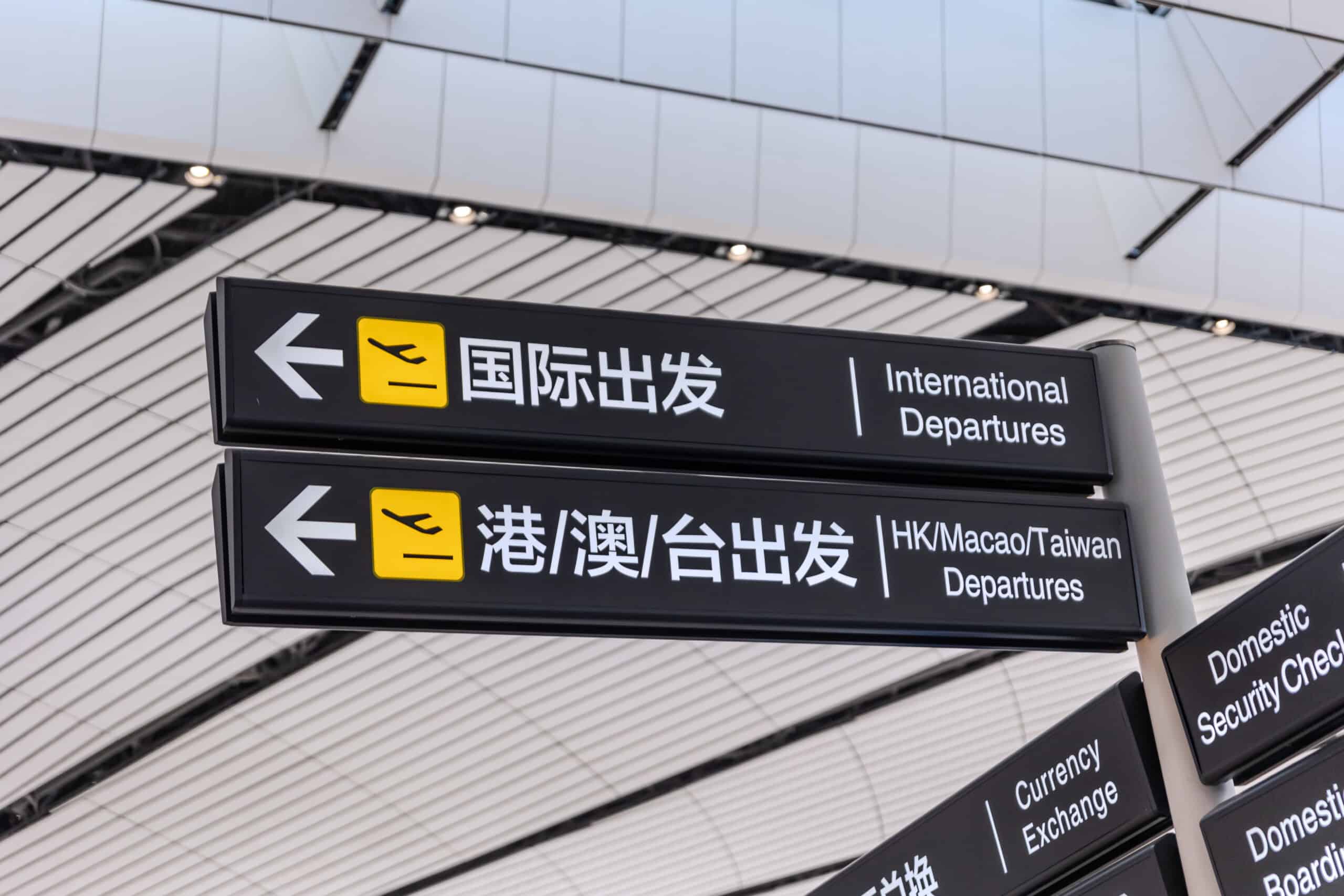
Not so long ago, China was a thriving hub for expatriates, from students looking to learn Mandarin — and for a bit of adventure — to business executives keen to explore a vast market undergoing seemingly endless high growth.
Those days seem to be over. China has undergone a significant decline in its foreign population. And while the country’s top leadership has sought to reaffirm its continued openness to foreigners in recent interactions with corporate leaders, similar efforts in the past have yielded limited results.


China’s fading connection with the world poses challenges to the country’s global standing and development ambitions. A continuing exodus of expatriates would deprive China of critical foreign investment, talent, and information while cutting off its already shaken linkages to the rest of the world. To steer the world’s second-largest economy back on course, China needs to address the practical burdens faced by foreign nationals living there and foster an environment that truly embraces diversity.
THE EXPAT EXODUS
South Koreans (with 13.6 percent), Americans (12.5 percent), and Vietnamese (12.2 percent) made up the top three foreign communities in China in 2021, according to official statistics. The populations of all have been dropping drastically. The number of registered South Koreans fell by a staggering 30 percent from 2019 to 216,000 in 2023. Similarly, the Japanese community dwindled by 13 percent during the same period, while British nationals in China more than halved from pre-pandemic levels to around 16,000 last year.

These figures paint a stark picture of the challenges China faces in retaining its allure as a destination for foreigners. As of the last official population survey in 2020, 1.43 million immigrants lived in mainland China, including just over 600,000 who had lived there for over five years. In contrast to Japan and Korea, where foreigners account for over 2 percent of its general population, expats only take up about 0.1% of China’s total population. The places most affected by the current exodus are megacities, with Beijing and Shanghai experiencing almost 40 percent and 20 percent respectively in declines of expatriate populations between 2010 and 2020, reshaping what once were international hot spots for cultural and political exchanges.
OBSTACLES TO OVERCOME
The Covid-19 pandemic played a pivotal role in deterring foreigners from visiting or living in China. Travel restrictions, flight cancellations, and stringent quarantine measures made it nearly impossible for many to enter or remain in the country. As the Chinese state apparatus propagated the discourse of a “foreign virus” surrounding Covid-19, hostility towards foreigners increased.
…the prospects for improvement hinge on the government’s commitment to fostering people-to-people exchanges beyond merely using it as a catchphrase…
However, Covid can hardly account for all of the country’s problems with foreigners. In South Korea foreign student numbers have risen again to surpass pre-pandemic levels. But academic exchanges remain limited for China, which only began its partial reopening to degree-program students in mid-2022 and expanded these efforts in early 2023. Fresh international student enrollments in mainland China peaked at 172,571 in 2019, according to data by the Ministry of Education, then plummeted by nearly a half to just under 90,000 in 2020 due to the pandemic. They bounced back in 2022, but only to 114,112 — still much lower than pre-pandemic levels.

Beyond the pandemic, foreigners continue to face challenges in China’s self-contained cashless society. The ubiquitous use of e-payment systems like WeChat and Alipay has created obstacles for tourists and visitors who often struggle to open a Chinese bank account, complete the hard-to-navigate ID verification on WeChat, or convince their foreign banks to allow Alipay to link to their accounts. China’s Great Firewall poses additional difficulties for foreigners trying to connect to the global internet, limiting access to popular platforms such as Google, Meta, and X.

Barriers to tourism and other exchanges have translated into consequences for businesses too. With limited access to foreign employees during Covid lockdowns, Chinese companies increasingly rely on local hiring and remote working arrangements for overseas staff, leading to a phenomenon known as “localization.” High-profile cases of foreigners being detained on espionage charges or held in exit bans have raised alarm bells within the international community, deterring others from visiting or working in China.
The external decoupling with the West and internal emphasis on national security have also left foreign nationals in China in the crosshairs of great power competition. Growing restrictions on foreigners in sensitive sectors of strategic importance and the nationalization of the business environment have directly affected foreign students’ career opportunities in China. Foreign nationals have also expressed concerns about their prospects of working for government or public sector jobs back in their home countries, due to heightened suspicion and negative connotations related to their experiences in China.
FAR-REACHING IMPLICATIONS

The departure of foreigners from China carries significant implications for the country’s development. To start with, the country lost an estimated $362 billion in international tourist revenue between 2020 and late 2022. Foreign direct investment in China dropped by a staggering 13.7 percent in 2023.
Western businesses, which employ tens of millions of Chinese workers, are struggling to attract and retain foreign talent. Economists warn that the absence of foreign executives could deprive China of crucial knowledge and skills. For multinational corporations, the inability to station executives in China can lead to difficulties in maintaining the company’s values and ethos within the country.
In the academic realm, Chinese scholars have raised doubts about tightened restrictions on overseas travel, media engagement, and off-the-record communication associated with foreign nationals or entities. Doctoral students face difficulties in conducting research, collecting data, and collaborating with international counterparts. These limitations have hindered efforts to promote academic freedom, attract foreign students to China, and facilitate the exchange of ideas with the international scholarly community.
[China’s] policymakers must strike a delicate balance between their strong emphasis on national security and the imperative to remain an open and welcoming society…
The exodus of foreigners could have long-term implications for China’s global standing. China’s soft power projection and global image have already taken a hit from its Covid-19 handling. The reduction in foreign arrivals post-pandemic threatens to further isolate the country and reinforce negative perceptions abroad.
Longtime expatriates have historically served as cultural ambassadors and policy experts, fostering mutual understanding and mitigating mistrust between China and the rest of the world. The diminishing presence of this vital bridge-builder population risks exacerbating misinterpretations and deepening divides.
These far-reaching implications underscore the pivotal role that foreign nationals play in lubricating cross-border flows of capital and ideas. If left unaddressed, this unusual brain drain could stymie China’s growth trajectory and harm its relationships with the international community. As China is striving to become a preeminent economic and technological powerhouse, the loss of foreign investment, talent, and expertise becomes an issue of paramount importance to both Chinese policymakers and their global counterparts.
WILL TOMORROW BE A BETTER DAY?
Recent statements by Chinese leaders have emphasized the importance of ties between Chinese and other peoples, signaling a desire to expand educational, cultural, and business exchanges. In practice, the prospects for improvement hinge on the government’s commitment to fostering people-to-people exchanges beyond merely using it as a catchphrase and addressing the underlying issues that have dissuaded foreigners.

China has implemented a number of measures to boost tourism, such as the introduction of visa-free policies for several European countries and the long-overdue easing of international flight restrictions. Efforts are also underway to improve the accessibility of mobile payment systems for foreign nationals. Meanwhile, other countries can help by refraining from hostile political postures and encouraging people-to-people exchanges in apolitical arenas. Initiatives like expanding scholarships, easing travel alerts, and issuing guidelines for international collaborations could nudge China into reengaging with foreign talent.
However, more comprehensive and fundamental reform is necessary for China to address deeper structural concerns like arbitrary detention, personal freedom, and xenophobia. Promoting greater transparency in regulations such as the counter-espionage law and cross-border data protection could help alleviate concerns among international researchers and business professionals. Cultivating an environment that embraces diversity, protects individual rights, and promotes open dialogue would help restore China’s appeal as a destination for foreigners.
As China grapples with these challenges, its policymakers must strike a delicate balance between their strong emphasis on national security and the imperative to remain an open and welcoming society. Failure to do so would further erode China’s position on the global stage and undermine its aspirations for sustainable economic growth, intellectual advancement, and cultural influence.

Zhuowen Li is a Washington-based analyst focused on Chinese political economy and international development. He holds a master’s degree in analytical political economy from Duke University and a bachelor’s degree in economics and finance from Tsinghua University in China. His writings have appeared in the South China Morning Post and The Diplomat.

Mathilde Barge is a Washington-based analyst focused on China’s foreign relations and technology policy. She holds a bachelor’s degree from the London School of Economics, and is currently pursuing a master’s degree in international relations at Johns Hopkins University School of Advanced International Studies.



